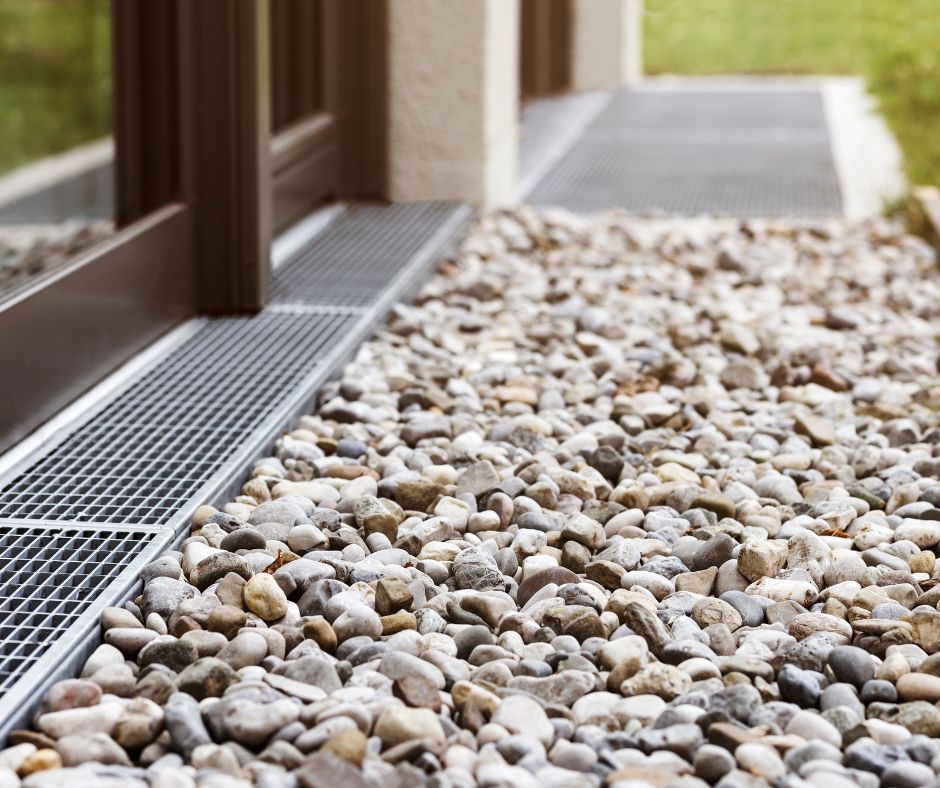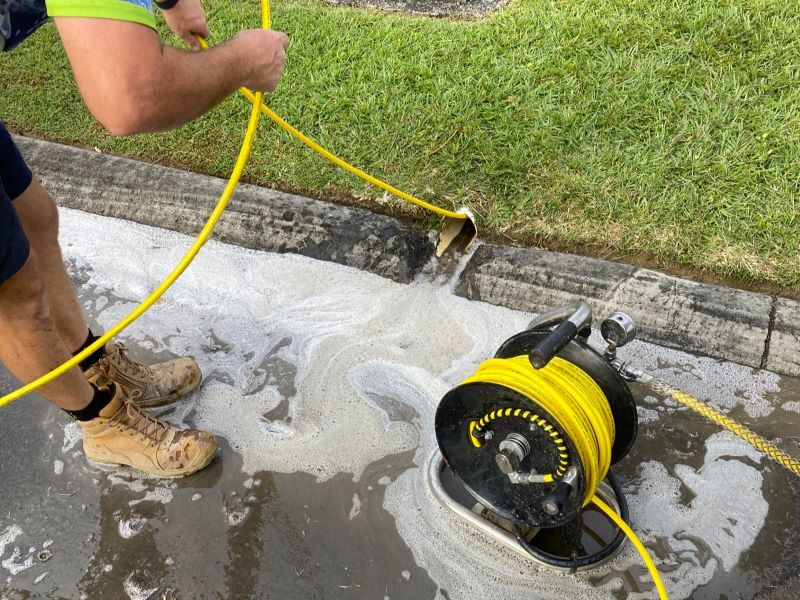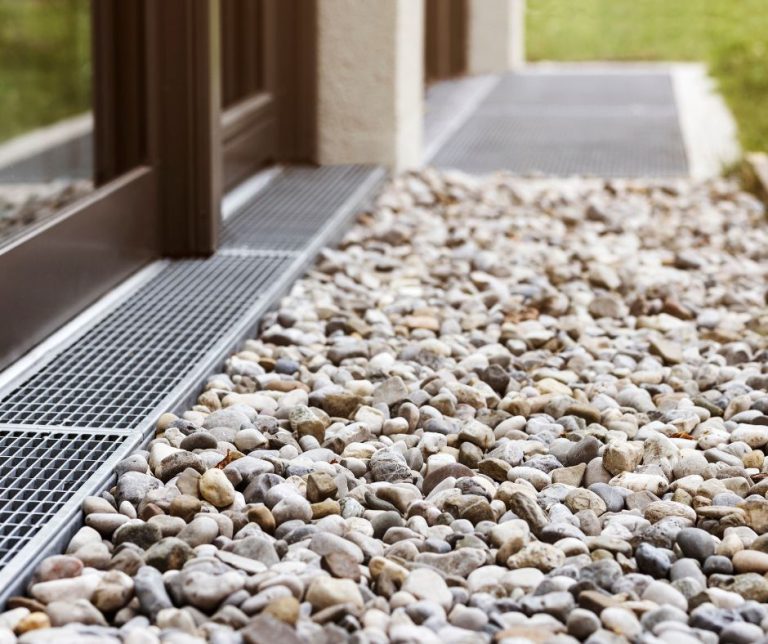Implementing efficient stormwater drainage systems is essential for safeguarding your property against water damage and managing stormwater runoff effectively. These systems include vital components such as roof plumbing drainage, French drains, spoon drains, and strip drains, all designed to channel water away from your property. Regular maintenance plays a crucial role in ensuring these systems function optimally, as neglect can result in severe complications like drain blockages, flooding, and structural damage. By proactively addressing potential issues—such as clearing clogged grates, managing invasive roots, or repairing damaged plumbing—you can avert future complications and expensive repairs. This diligence not only enhances the safety and dryness of your surroundings but also increases the overall functionality and value of your property.
This thorough guide provides valuable insights and actionable strategies to keep your drainage systems running smoothly, focusing on essential steps to take when confronted with blockages.

Essential Strategies for Maintaining Traditional Stormwater Drainage Systems
Traditional stormwater drains are a fundamental aspect of effective property management, as they efficiently redirect rainwater away from buildings, significantly reducing the risk of flooding and potential water damage. However, these systems can become obstructed over time by various forms of debris, including leaves, dirt, and branches, which can severely hinder their functionality. Therefore, establishing a consistent maintenance schedule is vital to guarantee that water flows freely and does not accumulate around the foundation of your home, preventing serious structural issues. By dedicating time and resources to regular upkeep, you can prolong the lifespan of your drainage systems and enhance their performance, especially during heavy rain events.
Key Maintenance Tips for Traditional Stormwater Drains:
- Consistently Clear Grates and Gutters: It’s essential to regularly remove leaves and debris, particularly after storms, to prevent obstructions that can impede water flow.
- Monitor for Pooling Water: Keep vigilant for any indications of water backup or pooling near your drains, as these could signify a blockage. Additionally, watch for soggy areas in your garden that may indicate underlying drainage issues needing attention.
- Consider Professional Assistance: Schedule regular inspections and cleanings with a qualified plumber like Creek to Coast to ensure your drains operate at peak efficiency and proactively avoid potential problems.
Vital Guidelines for Maintaining the Efficiency of French Drains
French drains are expertly engineered to redirect groundwater away from your home and retaining walls, making them indispensable for effective moisture management. However, these underground systems demand consistent care to prevent clogs. Utilizing a combination of gravel and perforated pipes, French drains facilitate water diversion but can become obstructed over time due to the accumulation of dirt, sediment, and root infiltration. Regular maintenance is essential to ensure the longevity and efficiency of these systems, preventing unwanted water buildup around your property and protecting your structural integrity.
Critical Maintenance Guidelines for French Drains:
- Monitor for Slow Drainage: If you observe that water is draining more slowly than usual, it may indicate a clog within your French drain system that requires immediate attention to prevent further complications.
- Regularly Flush the Drainage System: Periodically running water through the drain can help clear potential blockages before they escalate into significant issues, thus ensuring optimal functionality.
- Utilize Professional Cleaning Services: If you notice sediment buildup or root intrusion, contact Creek to Coast for thorough cleaning, potentially employing hydro-jetting tools to effectively clear the pipes or inspection points.
Best Practices for Maintaining Spoon Drains Effectively
Spoon drains consist of shallow, curved channels specifically designed to guide surface water away from driveways, patios, and other paved areas efficiently. While these drains are generally low-maintenance, they still require regular attention to prevent clogging. Neglecting to clear these channels can result in water pooling on your property, which may lead to damage over time. By adopting straightforward maintenance habits, you can ensure that your spoon drains remain functional and effective in managing water flow, ultimately safeguarding your property from potential water-related issues.
Practical Strategies for Spoon Drain Maintenance:
- Regularly Remove Debris: Frequently sweeping out leaves, dirt, rocks, and rubbish will help maintain smooth water flow. Consider using a high-pressure washer for thorough cleaning when necessary.
- Check the Drainage Slope: Since spoon drains rely on gravity to direct water, ensure that the slope is properly maintained to promote effective drainage.
- Inspect for Structural Damage: Routinely check the drain for any cracks or breaks, as they can be weakened by vehicle traffic over time, potentially leading to more serious issues.
- Seek Professional Assessment: If you notice inadequate drainage, it may be prudent to consult Creek to Coast for a professional evaluation, as their expertise can help restore optimal drainage conditions.
Essential Practices for Linear Drain Maintenance
Linear drains, commonly referred to as trench drains, are strategically positioned in areas like driveways and pool decks to effectively capture surface runoff. Although they excel at preventing water accumulation, they can collect debris over time, making regular cleaning necessary to maintain their efficiency. Consistent maintenance is critical to ensure these drains remain unobstructed, as any blockage can result in water pooling, creating potential damage to surrounding areas. By implementing a regular cleaning routine, you can significantly enhance the performance and longevity of your linear drainage systems.
Key Recommendations for Linear Drain Care:
- Frequently Clean Grates: Regularly check the grates for any buildup of dirt, leaves, or debris that could obstruct the flow, and promptly remove these blockages to maintain optimal performance.
- Flush the System Regularly: Routinely running water through the drain will ensure it flows correctly and that no blockages are present to hinder drainage.
- Utilize Professional Maintenance Services: Should you experience backups or slow drainage, contact Creek to Coast for expert cleaning services to effectively remove deep clogs and restore your system’s functionality.
Quick and Effective Solutions for Addressing Blocked Drains
Despite diligent maintenance, blockages can still occur in any drainage system. Signs such as pooling water, slow drainage, or overflowing grates indicate that immediate action is necessary to prevent more severe issues from developing. Understanding the common causes of blockages can assist you in pinpointing the problem and taking the necessary steps to resolve it effectively, ensuring your drainage systems operate efficiently and effectively.
Common Causes of Drain Blockages:
- Tree Roots: Roots can infiltrate underground pipes, leading to significant blockages that disrupt water flow and necessitate prompt intervention.
- Debris Accumulation: Leaves, dirt, and other environmental materials can gather over time, obstructing the passage of water through your drainage system.
- Pipe Damage: Broken or crushed pipes can severely restrict water flow, requiring immediate professional intervention to address the issue.
When faced with a blockage, it is advisable to seek assistance from a professional plumber like Creek to Coast. They utilize advanced tools such as high-pressure water jetters and CCTV cameras to accurately diagnose and remedy the issue effectively. Attempting to resolve a blockage on your own can often exacerbate the problem, especially if the pipes are already damaged or if roots have infiltrated the system.

Comprehensive Strategies for Maintaining Your Stormwater Drainage Systems
To ensure the ongoing effectiveness of your stormwater management systems—whether they be traditional, French, spoon, or linear drains—implementing the following strategies is crucial:
- Schedule Annual Inspections and Cleanings: Collaborate with a licensed plumber like Creek to Coast for proactive maintenance, which helps remove debris and identify potential issues before they escalate into serious problems.
- Observe Water Flow: After heavy rainfall, inspect your drains for signs of pooling or slow drainage, as these may indicate underlying issues that require immediate attention.
- Install Gutter Guards and Grates: Consider these installations to prevent larger debris from entering your drains, thereby reducing the frequency of blockages and enhancing overall efficiency.
- Maintain Distance Between Vegetation and Drains: Roots from nearby trees can invade and obstruct pipes, so ensure a safe distance between plants and your stormwater system for optimal performance.
Engaging in regular plumbing maintenance and responding promptly to drainage issues is vital for protecting your property from water damage and ensuring that your drainage systems function efficiently. If you notice any signs of blockage, do not hesitate to reach out to Creek to Coast for expert assistance in keeping your stormwater drains flowing smoothly!
The Article: Stormwater Clarity: Essential Drain Maintenance Tips first appeared on https://writebuff.com.
References:
Stormwater Clarity: Essential Drain Maintenance Tips



